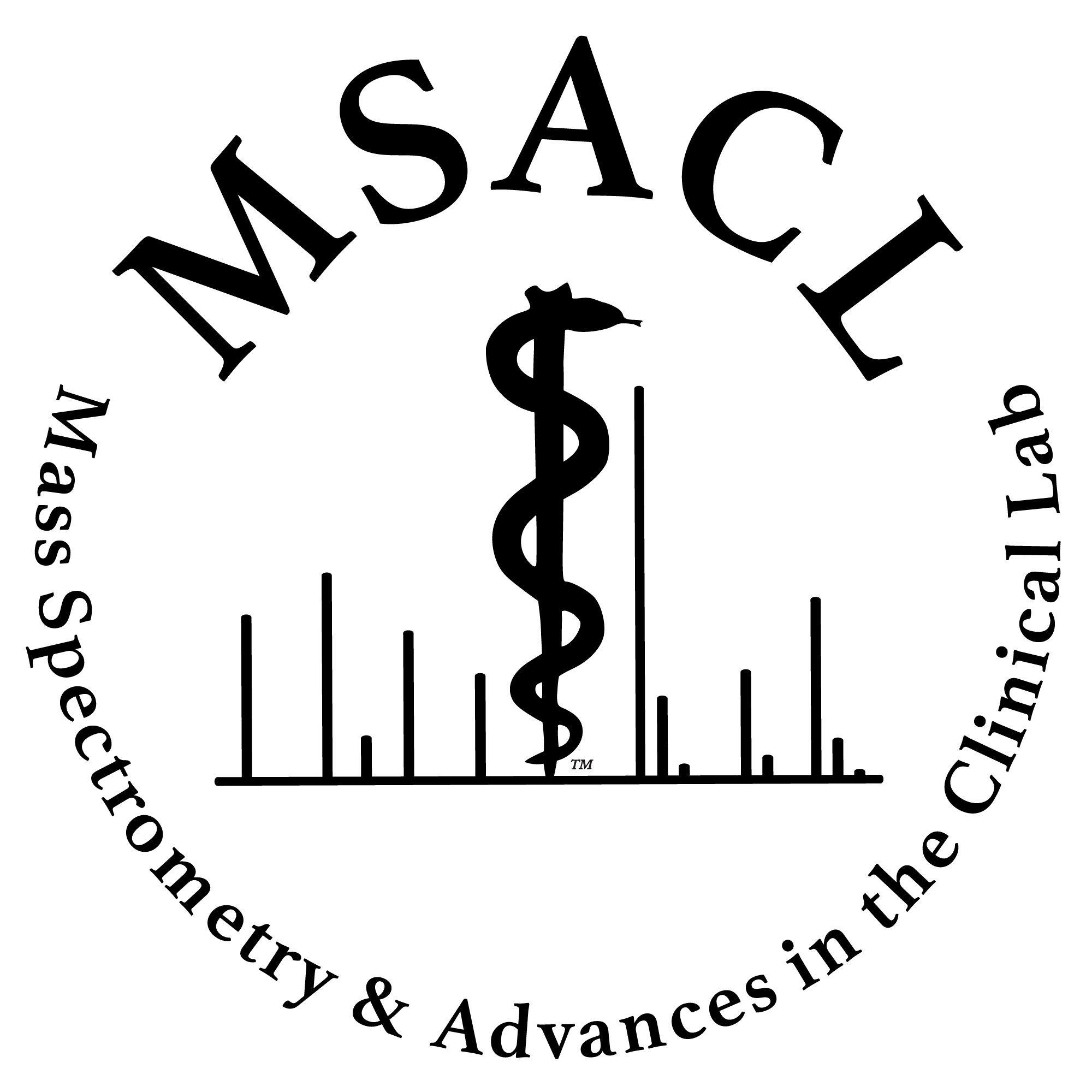MSACL 2024 Abstract
Self-Classified Topic Area(s): Small Molecule > Microbiology > Metabolomics
|
|
Poster Presentation
Poster #43b
Attended on Wednesday at 14:30
|

|
 Changes in Infant Health-Related Metabolites During Pregnancy After a Nutritional Intervention Changes in Infant Health-Related Metabolites During Pregnancy After a Nutritional Intervention
Emma R Guiberson (1), Elisa Caffrey (1), Justin Sonnenburg (1,2,3)
(1) Department of Microbiology and Immunology, Stanford University, Palo Alto, CA (2) Chan-Zuckerburg Biohub, San Francisco, CA (3) Center for Human Microbiome Studies, Stanford University, Palo Alto, CA
|
Presenter Bio: Emma completed her B.S. in Chemistry and Philosophy at the University of Notre Dame, conducting research in organic chemistry and chemistry education research, before pursuing a PhD in Chemistry at Vanderbilt University. As a graduate student in the labs of Dr. Richard Caprioli and Dr. Jeff Spraggins, her research focused primarily on the application of imaging mass spectrometry to the gastrointestinal tract (Guiberson, et. al. JASMS 2022) and utilizing targeted small molecule analysis to better study bile acids in the gastrointestinal tract during Clostridioides difficile infection (Wexler and Guiberson, et. al. Cell Reports 2021). Additionally, she worked on utilizing spatial proteomics to understand abscess formation during Staphylococcus aureus infections (Guiberson and Weiss, et. al. ACS Infectious Diseases 2020). This work led to an interest in the gut microbiome and the metabolites produced by microbes in the gastrointestinal tract. After defending her PhD in August of 2022, Emma then joined the lab of Dr. Justin Sonnenburg at Stanford University to study microbial-derived metabolites. Her current work in the Sonnenburg lab focuses on both untargeted metabolomics using a library of microbiome-derived metabolites (Han, Guiberson, Sonnenburg, Protocol Exchange, 2022), as well as necessary targeted methods for quantitative analyses of metabolites of interest that accumulate as uremic toxins during kidney disease. Emma plans to combine these training experiences one day in her own independent research group studying host-pathogen-microbiome interactions in the human gut. |
|
|
|
|
Abstract Introduction: Pre-term birth is a leading cause of child mortality, and is particularly present in undernourished populations. Diet is a powerful lever for manipulating the gut microbiome, which has been linked to a wide variety of health conditions in humans including cardiovascular health, asthma, food allergies, and others. As the gut microbiome plays a crucial role in maternal health, and the infant microbiome is acquired in part from the mother, understanding changes in the maternal microbiome during pregnancy can give potential impact into infant health and preterm birth. In particular, understanding the activity of the gut microbiome through signaling molecules such as microbiota-dependent metabolites (MDMs) gives a unique perspective into the host-microbiota interactions. These metabolites can travel throughout the body via biofluids. Previous data shows wide-scale changes in microbial communities and metabolites resulting from dietary interventions. As a portion of the infant microbiome is acquired from the mother, understanding changes to the microbiome and MDMs of pregnant mothers is paramount. In this study, we investigated longitudinal changes in MDMs in pregnant women living in Burkina Faso as a result of nutritional intervention during pregnancy, to further elucidate the impact of diet on the microbiome.
Methods: Previously the lab has developed an MDM-focused library for analysis of untargeted metabolomics data from biological samples. Study participants in Burkina Faso either received a nutritional intervention during their pregnancy, or continued on an existing dietary program. Health data analysis conducted on these individuals showed overall positive impacts on the maternal and infant health of participants receiving a nutritional intervention. Fecal samples were collected prior to the interventions and periodically throughout the pregnancy, for a total of 240 individuals over 3 time points. 300 samples were analyzed using metagenomics for strain identification and using LC-MS for untargeted metabolomics analysis. Extracted metabolites were then analyzed via LC-MS using an Agilent 1290 Infinity II LC coupled to an Agilent QTOF 6545 in both positive and negative mode. Data were then converted to a vender-neutral format using MS-Dial and compared against previously-collected library spectra for identification using exact mass and retention time.
Results: This semi-targeted metabolomics pipeline method has routinely enabled the detection of many microbial dependent metabolites from biological samples, many of which change as a result of dietary interventions. In this study, we were able to detect dozens of MDMs that differ significantly from our library within fecal samples from pregnant subjects. In particular, we discovered a variety of metabolites that differ during the third trimester based on diet status. Of note within these changing metabolites are those that are commonly screened for in newborn metabolic testing as markers of metabolic diseases such as methymalonic acidosis (MMA). Many metabolites with negative associations with infant health showed decreased abundances in women receiving the nutritional intervention compared to the standard diet counterparts. This suggests that diet changes may reduce risk of these metabolic diseases in infants. Overall, these data suggest that a dietary intervention during pregnancy can impact gut microbiome diversity, resulting in changes to the metabolites present during and after pregnancy. These changes can potentially be passed onto infants during birth, leading to lifelong microbial implications. An important next step of this work is to determine how such diet-induced microbiome modification during pregnancy impacts infant microbiome, metabolome, and overall health.
|
|
Financial Disclosure
| Description | Y/N | Source |
| Grants | no | |
| Salary | no | |
| Board Member | no | |
| Stock | no | |
| Expenses | no | |
| IP Royalty | no | |
| Planning to mention or discuss specific products or technology of the company(ies) listed above: |
no |
|

